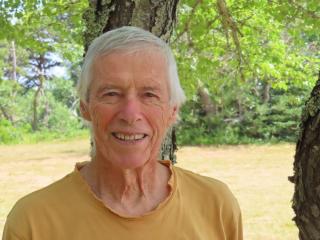Malcolm Jones

Kenneth Malcolm Jones “Mal” is an inventor, machinist and philanthropist who is passionate about creating a more cooperative existence among humans. After serving in the Air Force during the Korean War, he attended Brookes Photography School intending to have a career in television advertising. He quickly realized that advertising was not his passion, so in 1960 he moved to Martha’s Vineyard to care for his family’s farm where he soon became an active member of the community. Mal’s interests in environmental and humanitarian causes are varied, but it is his commitment to women’s empowerment that has strongly deepened over the years. More recently, as a result of his interest in women’s rights, Mal has become fascinated with bonobos, an endangered female-dominant great ape that has sparked the curiosity of social scientists. They don’t have war, murder, or infanticide.
We recently spoke with Mal about his support for the National Women’s History Museum and his work to create a more just, equal, and representative society.
Of the many organizations, what drew you to supporting the National Women’s History Museum?
I look for ways to empower women. I believe the National Women’s History Museum provides a good platform to share stories about women working together for social progress. There is extensive history about how women’s roles have changed in our society, and those stories need to be told.
Was there a moment in time when you realized women needed to have larger roles in our society to create a more cooperative world?
In the 1960s and ‘70s I was involved in the movement to save the whales, where I met my wife. At some point we realized that we weren’t going to be able to save the whales without a shift in social power and that empowering women would give us a better chance of saving the whales along with the rest of the planet. So, I began working with the Federation of Feminist Women’s Health Centers in California, and that experience started me down the path of supporting women.
You’ve said, “History is a powerful teacher.” What do you hope future generations can learn from the past?
When we invent things, we need to think about the impact of our inventions. During the Korean War I was stationed in Libya. I witnessed how advances in hygiene and the availability of antibiotics allowed for much higher infant survival rates but didn’t balance that against the fact that there wasn’t enough food to feed the babies being born. Throughout history, you’ll see there’s a difference between how men and women solve problems, and I believe if women were in charge, we would have a more hopeful existence.
